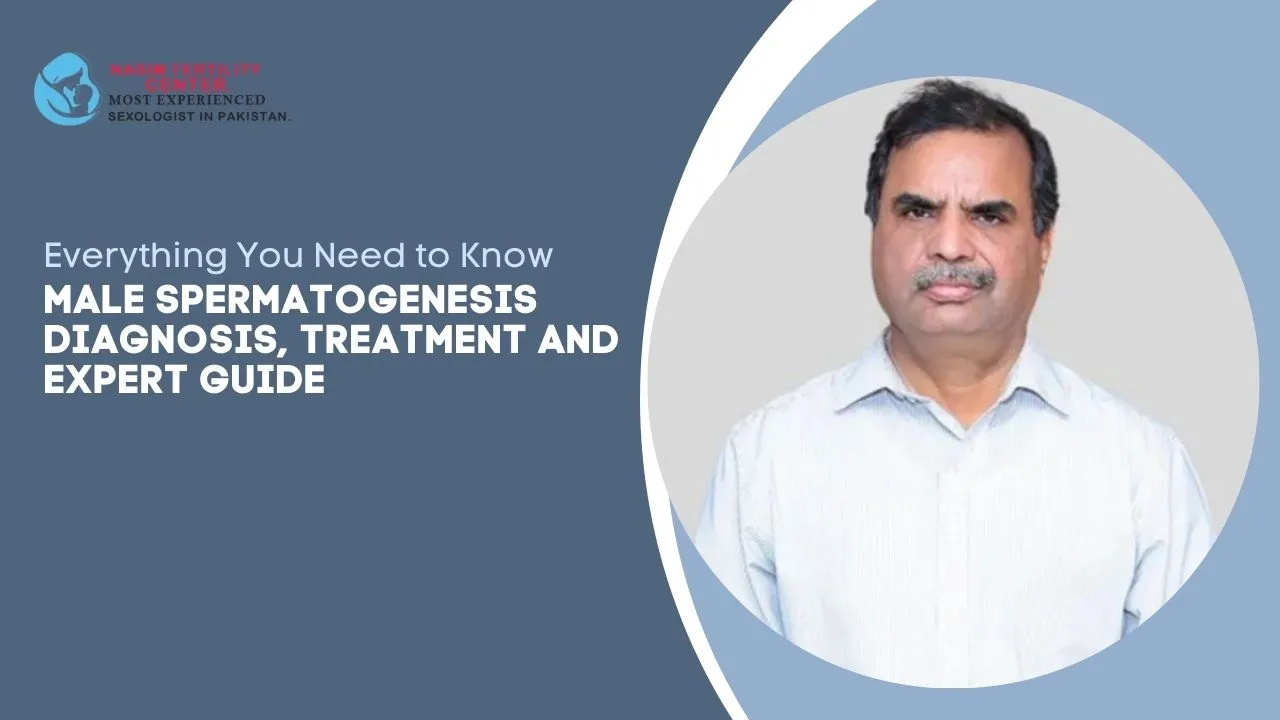
Understanding Male Spermatogenesis
Spermatogenesis is the complex process by which male gametes, or sperm cells, are produced in the testes. This multi-step process begins at puberty and continues throughout a man’s life, enabling him to father children. A thorough understanding of spermatogenesis can help men struggling with infertility issues better comprehend potential treatment options aimed at improving this vital process.
What is a Sperm?
Sperm, also known as spermatozoa, are the male reproductive cells or gametes that carry half of the genetic material needed to create offspring. These tiny, tadpole-like structures consist of a head, midpiece, and tail. The head contains the nucleus with densely coiled chromatin, while the midpiece is packed with mitochondria to provide energy for motility. The tail, or flagellum, propels the sperm forward.
The Male Reproductive System
The male reproductive tract consists of several key structures that facilitate sperm production, storage, and transport:
- Testes: Oval-shaped organs that produce sperm and testosterone. They are divided into seminiferous tubules where spermatogenesis occurs.
- Epididymis: A long, coiled tube that stores and transports maturing sperm from the testes.
- Vas deferens: Muscular tubes that propel mature sperm from the epididymis to the urethra during ejaculation.
- Accessory glands: The seminal vesicles, prostate gland, and bulbourethral glands secrete fluids that mix with sperm to form semen.
- Penis: The male organ for sexual intercourse and ejaculation of semen through the urethra.
Sperm banne ka amal (Male Spermatogenesis) theek se nahi ho raha?
Dr. Farooq Nasim Bhatti, Pakistan ke expert sexologist aur male infertility specialist se confidential consultation lein — advanced treatment ke zariye apni reproductive health behtar banayein.

Human Sperm Production Process
Sperm production, or spermatogenesis, occurs within the seminiferous tubules of the testes. This process begins at puberty and typically continues throughout a man’s life, generating millions of sperm each day. The entire process, from immature germ cells to mature spermatozoa, takes approximately 74 days.
How Sperm Are Made
Spermatogenesis involves three main stages:
- Spermatogonial stage: Diploid spermatogonia (germ cells) undergo mitotic division to produce primary spermatocytes.
- Spermatocyte stage: Primary spermatocytes undergo meiosis I to form secondary spermatocytes, which then complete meiosis II to produce haploid spermatids.
- Spermiogenesis: Spermatids mature into functional spermatozoa, developing specialized structures like the acrosome and flagellum.
Mature sperm then travel through the epididymis, where they gain motility and fertilizing capacity, before being stored in the vas deferens until ejaculation.
This process takes approximately 74 days in humans, with millions of sperm produced daily after puberty. Sertoli cells within the seminiferous tubules nourish and support the developing sperm throughout this process.
Factors Affecting Sperm Production
Several factors can negatively impact spermatogenesis, leading to reduced sperm count, motility, or morphology:
- Hormonal imbalances, particularly in testosterone and FSH levels
- Exposure to toxins, drugs, or excessive heat
- Genetic abnormalities or chromosomal defects
- Infections like chlamydia or mumps that damage testicular tissue
- Varicoceles (enlarged veins in the scrotum) that impair sperm production
- Lifestyle factors such as smoking, alcohol abuse, and poor diet
Identifying and addressing these underlying causes is crucial for improving fertility outcomes in men with sperm-related issues.
Spermatogenesis-Related Problems
Various factors can disrupt normal spermatogenesis, leading to reduced sperm count, motility, or morphology:
- Hormonal imbalances, particularly in testosterone and FSH levels
- Genetic abnormalities or chromosomal defects
- Exposure to toxins, drugs, radiation, or excessive heat
- Infections like chlamydia or mumps that damage testicular tissue
- Varicoceles (enlarged veins in the scrotum) that impair sperm production
- Lifestyle factors such as smoking, alcohol abuse, obesity, and poor diet
These issues can contribute to male infertility, making it difficult for couples to conceive naturally.
Also Read: Azoospermia OR Zero Sperm Count
Diagnosing and Treating Male Infertility
When a couple experiences difficulty conceiving, both partners should undergo a comprehensive fertility evaluation. For men, this typically involves:
- Semen analysis to assess sperm count, motility, and morphology
- Physical exam to check for varicoceles or other abnormalities
- Hormone testing to evaluate testosterone and FSH levels
- Genetic testing if a chromosomal issue is suspected
Treatments for Resolving Sperm Production Problems
Treatment options for spermatogenesis-related problems depend on the underlying cause but may includ:
- Medications to improve sperm production, correct hormonal imbalances, or treat infections
- Surgical repair of varicoceles or obstructed reproductive tract structures
- Lifestyle modifications like maintaining a healthy weight, quitting smoking, and limiting alcohol intake
- Assisted reproductive technologies (ART) such as IVF or ICSI, which can help bypass severe sperm issues
Seeking support from a mental health professional can also help couples cope with the emotional challenges of infertility.
Working closely with a fertility specialist is crucial for identifying the most appropriate treatment plan based on individual needs and goals.
Diagnose Potential Spermatogenesis Problems with a World-Famous Fertility Expert
Dr. Farooq Nasim Bhatti is a highly respected sexologist and fertility expert based in Lahore, Pakistan. As the first diplomate of the American Board of Sexology in Pakistan, Dr. Bhatti has extensive experience diagnosing and treating a wide range of male reproductive disorders.At his clinic, Dr. Bhatti offers comprehensive fertility evaluations, including semen analysis, physical exams, hormone testing, and genetic screening, to identify potential issues with spermatogenesis.
As a top rated sexologist in Pakistan, he has develops personalized treatment plans tailored to each patient’s unique needs, drawing upon his expertise in both conventional and advanced reproductive technologies. If you are struggling with infertility or concerns about your sexual health, consulting with a world-renowned specialist like Dr. Farooq Nasim Bhatti can provide the guidance and support you need to achieve your goals.
Consult with Dr. Farooq Nasim Bhatti for Expert Care
For men in Pakistan struggling with sexual health issues or infertility, Dr. Farooq Nasim Bhatti is a highly qualified and experienced sexologist who can provide personalized care. As the first diplomate of the American Board of Sexology in Pakistan, Dr. Farooq Nasim Bhatti has extensive expertise in diagnosing and treating a wide range of male reproductive disorders in Pakistan.
At his clinics in Lahore, Islamabad, and Faisalabad, Dr. Bhatti offers comprehensive fertility evaluations and tailored treatment plans to help men optimize their sperm production and overall sexual health. His research on sexual dysfunction has been presented at numerous international conferences, demonstrating his commitment to advancing the field of male reproductive medicine.
If you are facing difficulties with sexual function or fertility, scheduling a consultation with Dr. Farooq Nasim Bhatti can be an important first step towards achieving your goal of fatherhood. His Clinic also declared as a best iui center in pakistan. With his compassionate care and evidence-based approach, Dr. Bhatti can guide you through the process of understanding and addressing any underlying issues impacting your reproductive health.
Frequently Asked Questions:
How long does it take for sperm to mature?
The entire process of spermatogenesis, from germ cells to mature spermatozoa, takes around 74 days.
How many sperm are produced each day?
After puberty, the testes produce millions of sperm daily, with estimates ranging from 40 to 300 million per day.
Can lifestyle factors affect sperm production?
Yes, lifestyle factors like smoking, excessive alcohol consumption, obesity, and exposure to toxins or heat can negatively impact spermatogenesis.
What causes low sperm count?
Low sperm count can result from various factors, including hormonal imbalances, genetic abnormalities, infections, varicoceles, and certain medications or medical treatments.
How is male infertility diagnosed?
Diagnosing male infertility typically involves a semen analysis to assess sperm count, motility, and morphology, as well as a physical exam, hormone testing, and possibly genetic screening.
Can male infertility be treated?
In many cases, male infertility can be treated through medications, surgery, lifestyle changes, or assisted reproductive technologies, depending on the underlying cause.
When should I see a fertility specialist for spermatogenesis issues?
If you have been trying to conceive for 12 months or more without success, have known risk factors for male infertility, or are experiencing symptoms like erectile dysfunction or low libido, it is advisable to consult with a fertility specialist.
Disclaimer
This information is for educational purposes and not the treatment. For treatment, you need to consult the doctor.

Dr. Farooq Nasim Bhatti (MBBS, FAACS – USA, Diplomate: American Board of Sexology, CST, HSC – Hong Kong, CART – Malaysia & China) is a qualified medical sexologist with 30+ years of experience. He has presented 21+ research papers internationally and treats sexual dysfunction through sex therapy, counseling, and pharmacotherapy to restore natural sexual function without temporary medication.

Regain Confidence with Our ED Solutions
Explore effective treatments for erectile dysfunction. Take charge of your intimacy today.


